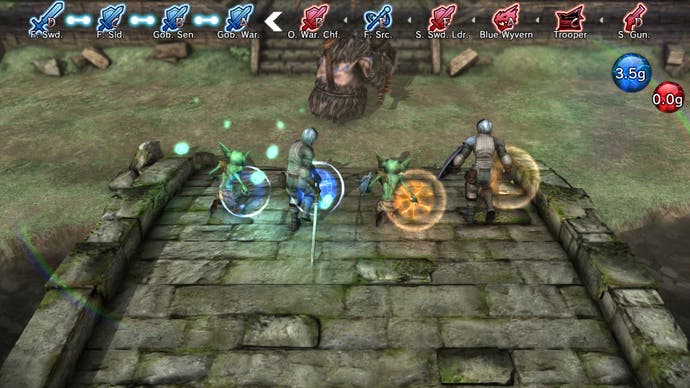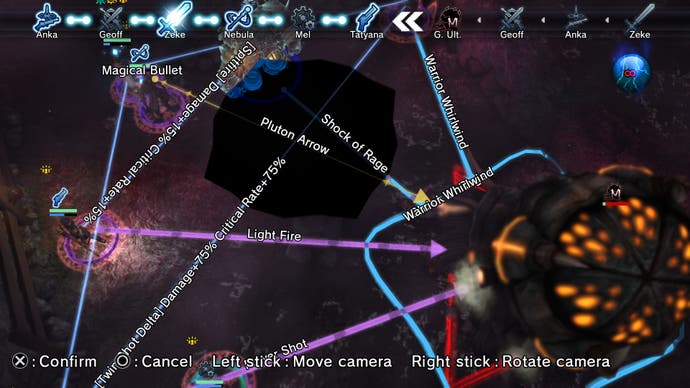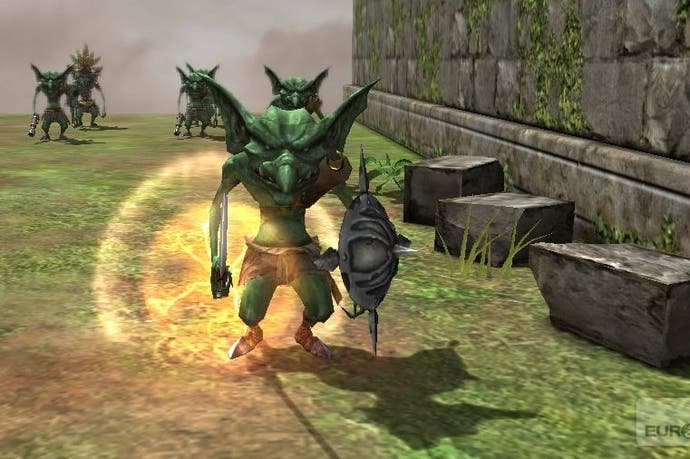Darwin and Dark Souls: evolving the tactical RPG with Natural Doctrine
Gene-ius?
Natural Doctrine is a game about Darwin and a game about huge robots with gears for shoulders. If that sounds intriguing, here's something else to excite you: it's also being pitched as a weird blend of Tactics Ogre and Dark Souls.
Additional good news? "We like to say that with this game, the story serves the gameplay rather than vice versa," explains Alan Costa, the assistant producer at NIS America, the tactical RPG's Western publisher. "It's very gameplay focused, very systems focused. There is a story, there are characters, you do follow them through a journey. In the end of the day, though, that's just to entice the player to keep learning more about the systems and the gameplay."
This is all the work of Kensuke Tanaka, a producer who's most famous for working under legendary designer Yasumi Matsuno on games like Vagrant Story and - hey! - Tactics Ogre. "Mr Tanaka felt the current Japanese market was stagnant," says Costa. "It didn't offer a lot of real gameplay, it's just clicking your way through from point A to point B."
So while Natural Doctrine has a story, it's there to get you up and running and then it pretty much ducks out. The whole thing's based on the idea of natural selection (that's the Darwin bit) and it plays out on a world that blends fantasy and steampunk technology (and there are your huge robots with gears for shoulders). Four races fight for supremacy against this backdrop, and the humans are at the bottom of the pile. They've been reduced to controlling a single city, and outsiders can only get in by proving their worth. This is the initial set-up, and both plot and mechanics then revolve around a newly discovered mineral substance called Pluton that allows its owners to wield magical energy.

Pluton defines the game. It's powerful stuff, which makes for lots of nice particle-heavy attacks in battle and - crucially - it's also very hard to come by. It's measured in grams on the cluttered UI and it doesn't replenish over time. If you need more Pluton, you'll have to find it in chests scattered around the game's complex maps. It doesn't recharge in between missions, either, which means that you can win the battle but lose the war. Brutal, demanding, punitive stuff. You know: Tactics Ogre - and Dark Souls.
Knowing when to go all in with Pluton and when to hold back is often the key to victory in a Natural Doctrine stage, but it's far from the only thing to think about. Like most TRPGs, the map's divided into tiles, and you can place multiple units on any single tile here to make use of something called linking. Linking allows you to connect various units together, either to jump ahead in the back-and-forth turn system that threads through each battle, pinging from player to AI, or to combine special attacks and deal out some real damage.
It's pure risk/reward design, since putting a weak unit on a tile next to a strong one to maximise firepower allows your enemies to target the weak one and pick them off when they next get a turn. This happens more than once, in fact, as I watch Costa play through a stage. Natural Doctrine's maps are designed for a game that takes line of sight into account, and while Costa's placed a tank character up front to suck up most of the incoming aggression, his other units are still prey to the AI's snipers even though he's done his best to hide them.

Throw in a no-nonsense defeat condition that sees the death of one friendly unit bringing the whole mission to a close, and you have a game that embraces an energising internal bitterness. Progress is slow and hard-won here, missions are multi-part and can take up to 40 minutes to play out, and when the screen's filled with the criss-crossing lines of links and counterlinks, Natural Doctrine fairly exudes a wonderfully arcane kind of appeal. In our short demo, we see the game over screen more than once.
Beyond the 30-mission campaign, which also includes a New Game Plus, online multiplayer retains the focus on placement and careful use of resources, but throws in an extra flourish. Rather than build up your team through the slow progress of the storyline, you earn and cash in Card Points as you play to build decks of units that may include some of the single-player's overpowered enemies as well as its overpowered heroes.
You'll get three starter decks, but they won't keep you competitive for very long. If you're worried about endless defeats to players who have simply put in more time and earned better cards, though, there's at least a cap to the Card Point cost of a deck in place, which in turn will make for interesting strategising. Lots of little units, a careful mix, or a couple of really big ones and nothing to fall back on?
Natural Doctrine's coming to PS3, PS4 and Vita this September, and it will be cross-play and cross-save if not, alas, cross-buy. It's not a graphical masterclass by any means - although I do think the units have a kind of war-gaming miniatures tactility to them - and I suspect the early game, at least, is going to pretty punishing as you get your head around the deeper elements of the design. Still: Tactics Ogre, Dark Souls? Game have done great things with the right kind of difficulty - and that's the kind of trait I suspect Natural Doctrine's inherited.

